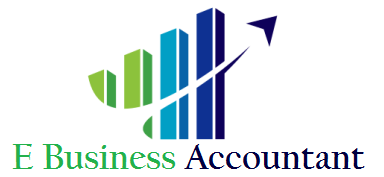Small businesses need to have a strong financial foundation to keep their operations moving. One of the ways to do this is through implementing effective accounting practices. If you find the world of accounting daunting, contact the Best accountant in Sunshine Coast. They’ll help you to plan your finances and advise you on the right thing to do. Here are the four best accounting practices that your startup should adopt.
Cloud-Based Accounting Systems
Traditionally, maintaining financial records involved tedious manual entry, leaving room for errors and inefficiencies. Cloud-based accounting solutions offer a seamless alternative. They provide real-time access to financial data from anywhere through an internet connection.
Transitioning to cloud-based accounting systems streamlines various accounting processes. These platforms automate routine tasks like invoicing, expense tracking, and financial reporting, minimizing errors and improving overall efficiency. Additionally, they promote collaborative financial management. You can use them to enable multiple users to access and update financial data simultaneously. This can improve teamwork and transparency within the organization.The scalability and flexibility of these platforms empower businesses to grow without the constraints of traditional accounting methods.
Regularly Reconcile Bank Statements
Bank reconciliation is a fundamental yet often overlooked practice in small business accounting. It involves comparing the transactions recorded in the company’s accounting system with those in the bank statement to ensure accuracy and identify any discrepancies. Regular reconciliation can uncover errors or unauthorized transactions before they escalate.
Small businesses often face challenges in monitoring and reconciling their bank statements due to limited resources or time constraints. However, neglecting this practice can lead to serious financial repercussions. Unreconciled accounts may result in inaccurate financial reports, hindering the ability to identify fraudulent activities promptly. To establish a strong reconciliation process, businesses should dedicate their time each month to compare their internal records with the bank statement. Accounting software can streamline this task and match the transactions with minimal effort. Consistently reconciling bank statements will help your startup protect its financial integrity and gain insights into cash flow patterns.
Monitor Cash Flow
In the unpredictable world of small business, maintaining a healthy cash reserve can be challenging. Establishing a cash reserve involves setting aside a portion of profits to cover unforeseen expenses or periods of reduced income. This reserve acts as a financial safety net, offering stability and peace of mind during challenging times.
Small businesses are particularly vulnerable to cash flow fluctuations, making it essential to monitor cash flow regularly. Cash flow encompasses the movement of money in and out of the business. Implementing effective cash flow management involves forecasting, tracking, and analyzing cash flow patterns to anticipate potential challenges and capitalize on opportunities.
Utilizing cash flow forecasting tools and reports within accounting software can help you know your firm’s financial liquidity. These tools can also help you with decision-making as they’ll assist you in identifying cash shortages in advance. In addition to forecasting, implementing efficient accounts receivable and payable processes can contribute to a smoother cash flow cycle.
Summing Up
Accounting best practices can help your business navigate the challenging financial landscape. Contact an accountant today if you need any help with your taxes or finances. They’ll ensure you’re committed to sound accounting practices and provide a solid framework for informed decision-making and sustainable growth. Top of Form
